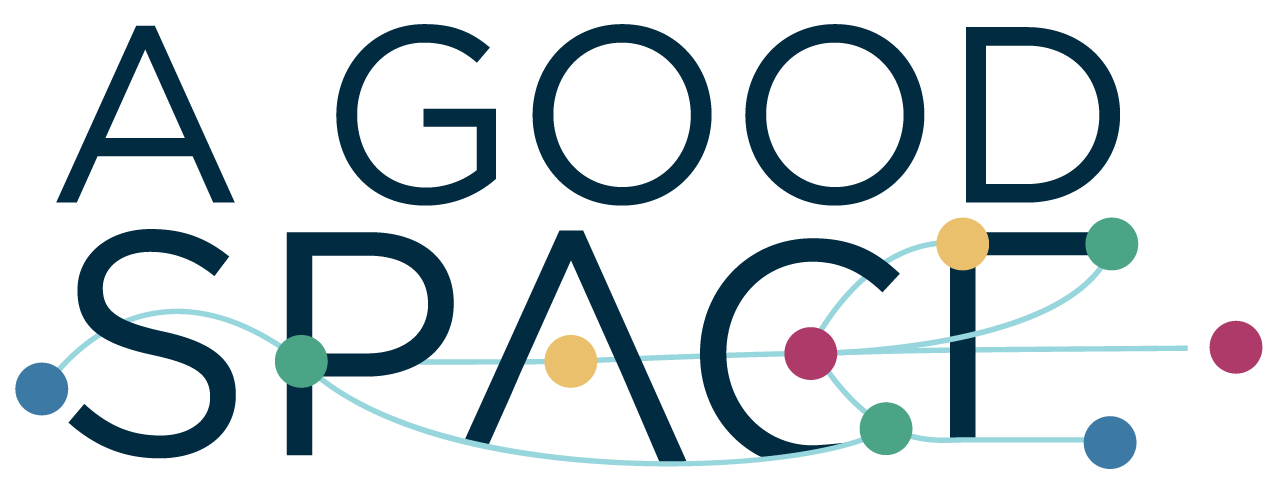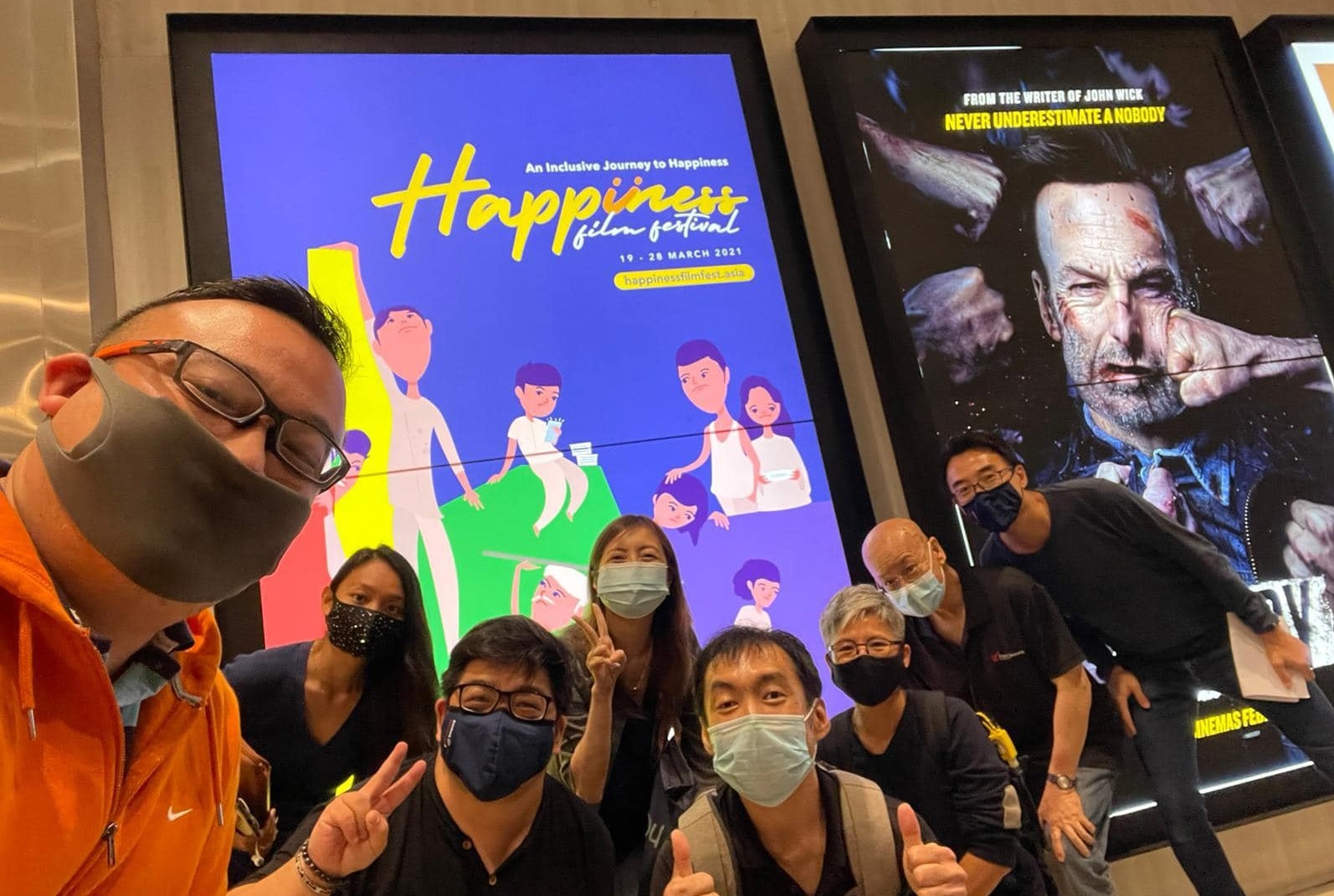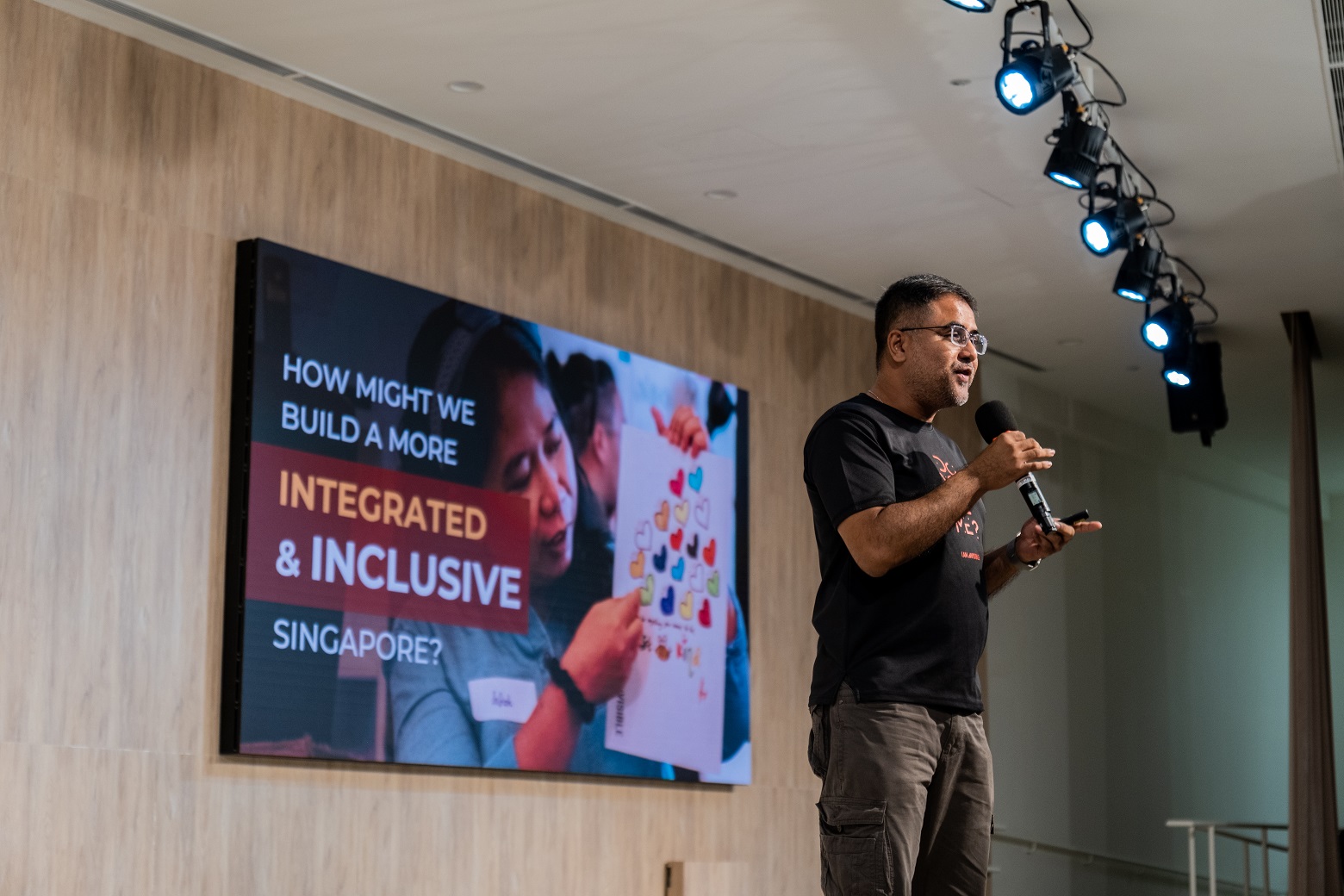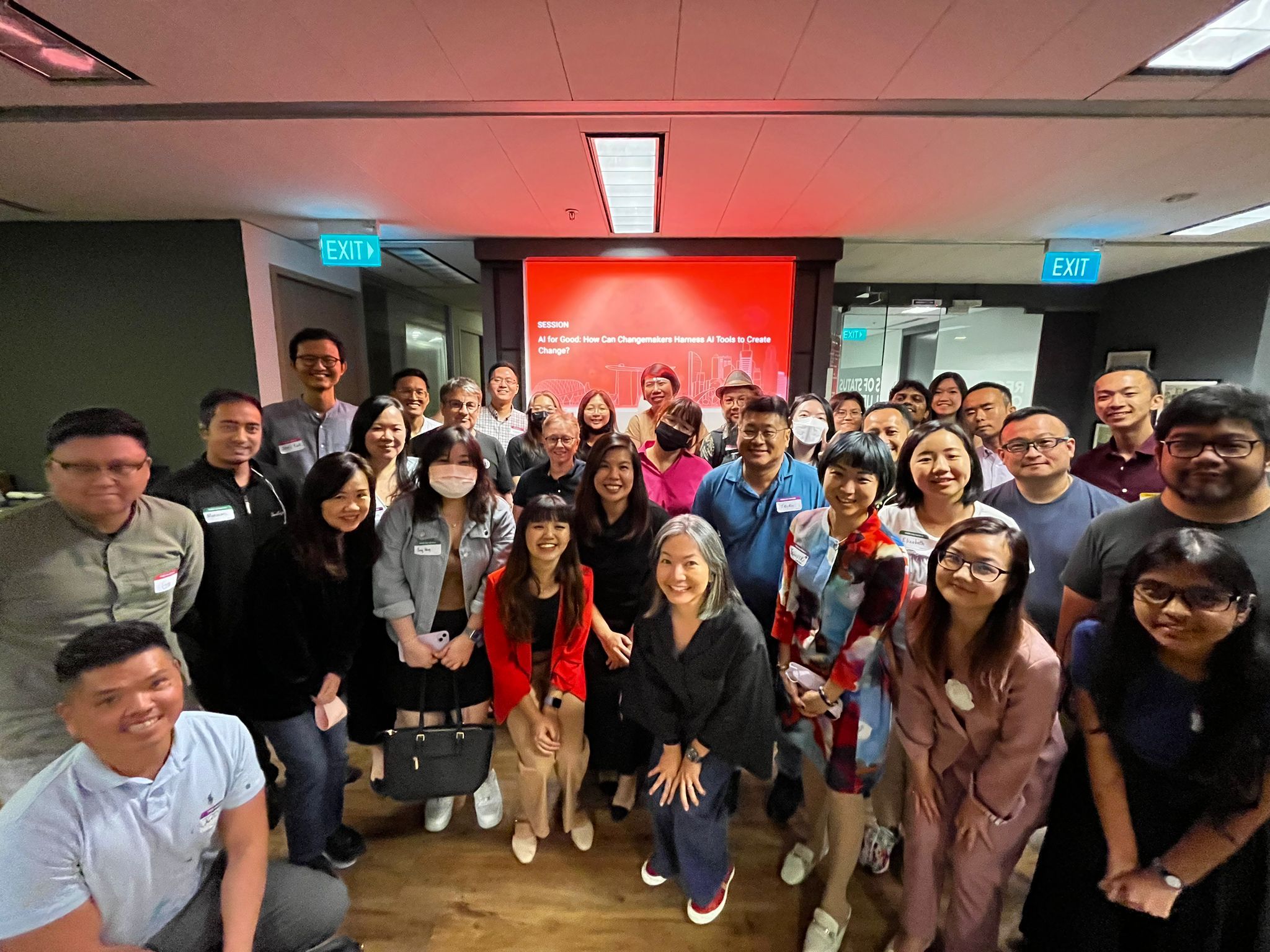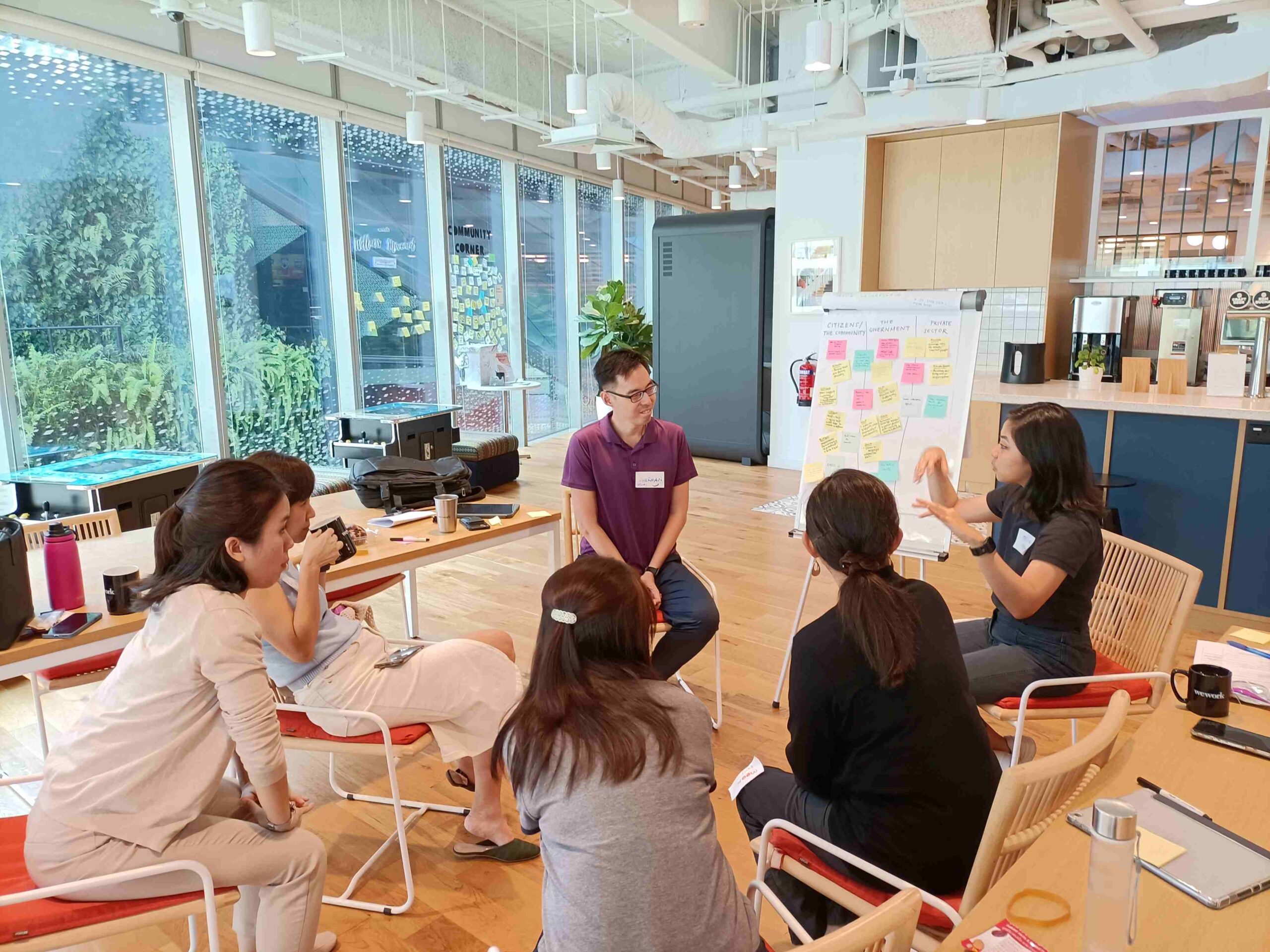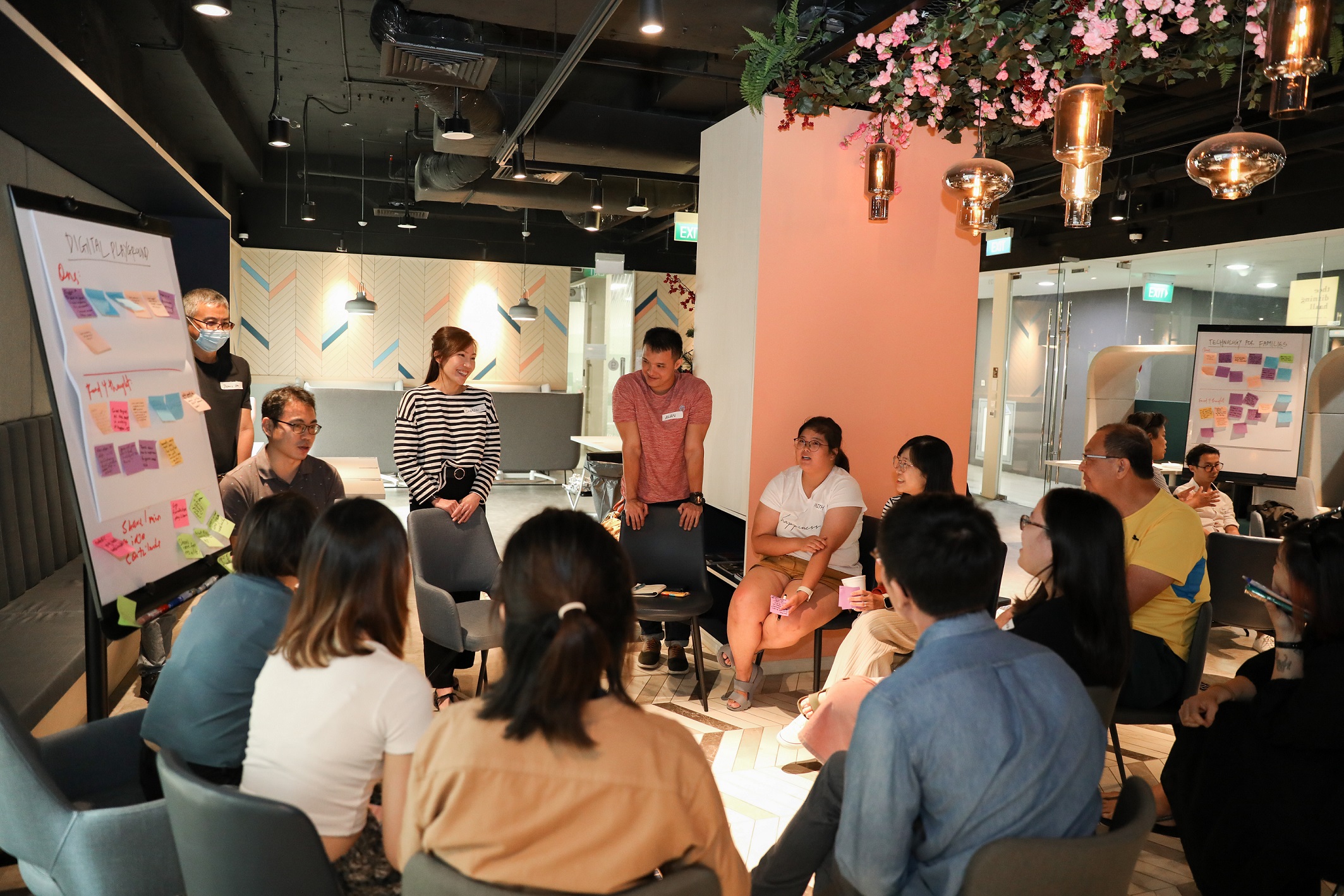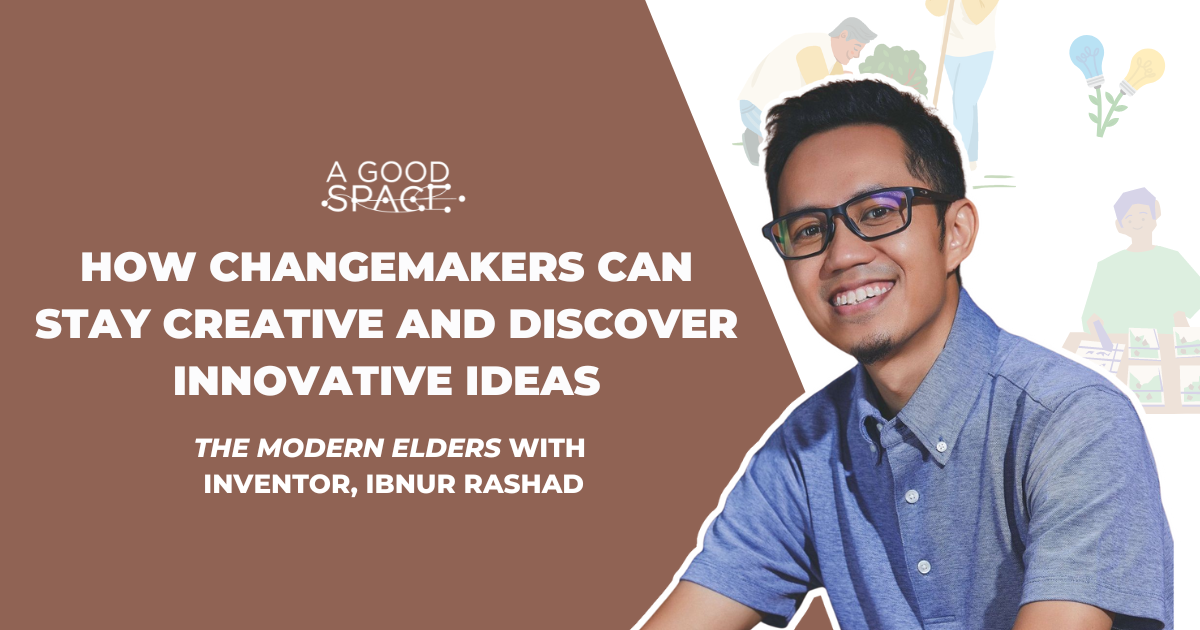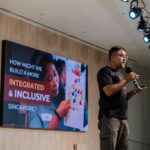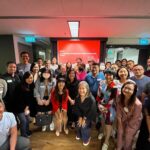The days are long but the years are short.
To be honest, I struggled quite a bit writing this reflection article. What if the quality of my reflections don’t match up to the significance of the occasion — our very first birthday?
I thought back to the rousing Parliamentary speeches that Anthea used to give or the warm feelings of connection I used to feel reading the weekly emails that Melissa used to send to us when we were still seated at NVPC.
I felt some pressure to write something that looked insightful or would move the reader to feel some emotions. After a while, I got frustrated and cast this article aside.
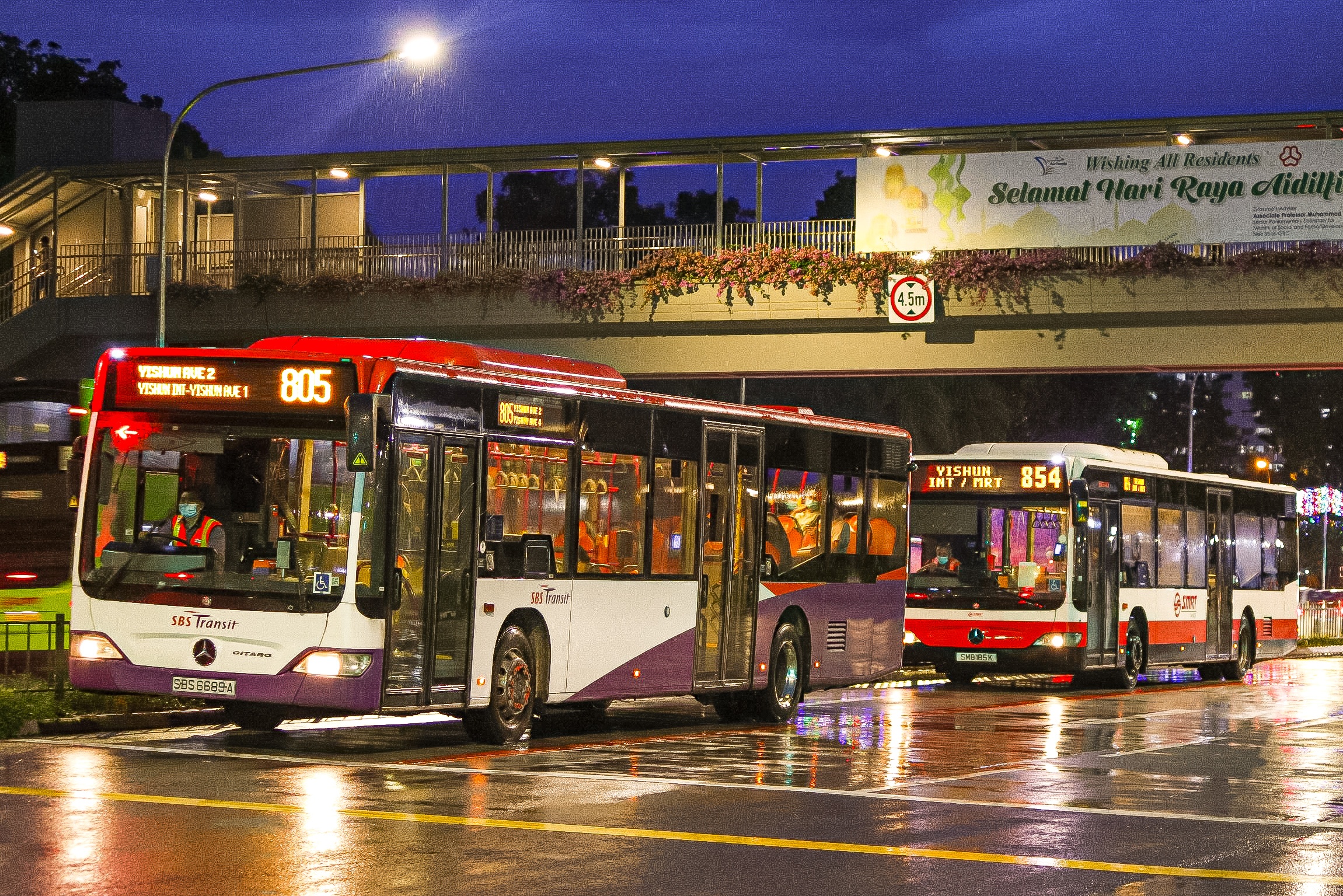
Then on the bus ride home earlier, it dawned on me that how the struggle in writing this article paralleled my own experience with A Good Space in our first year as a co-operative. So I opened my laptop and began typing again.
In many ways, my experience of this first year felt like writing this article — no idea how to begin, where it would end and when I would finish. In many ways, it was about learning to be comfortable with uncertainty and a future that was and still remains, largely unknown.
• • •
The Dunning-Kruger Effect
A few years ago, after a business partnership broke down, I co-wrote a book titled Why You Should Fail with my friend Grace. Grace had just completed a startup idea that had failed and we both interviewed 23 entrepreneurs and business leaders, hoping to learn practical wisdom from them on how to build a profitable company.
One of the most memorable lessons for me was the discovery of the Dunning-Kruger Effect, coined by psychologists David Dunning and Justin Kruger of Cornell University in 1999. In short, it describes a journey, which is beautifully summarised in this graphic below:
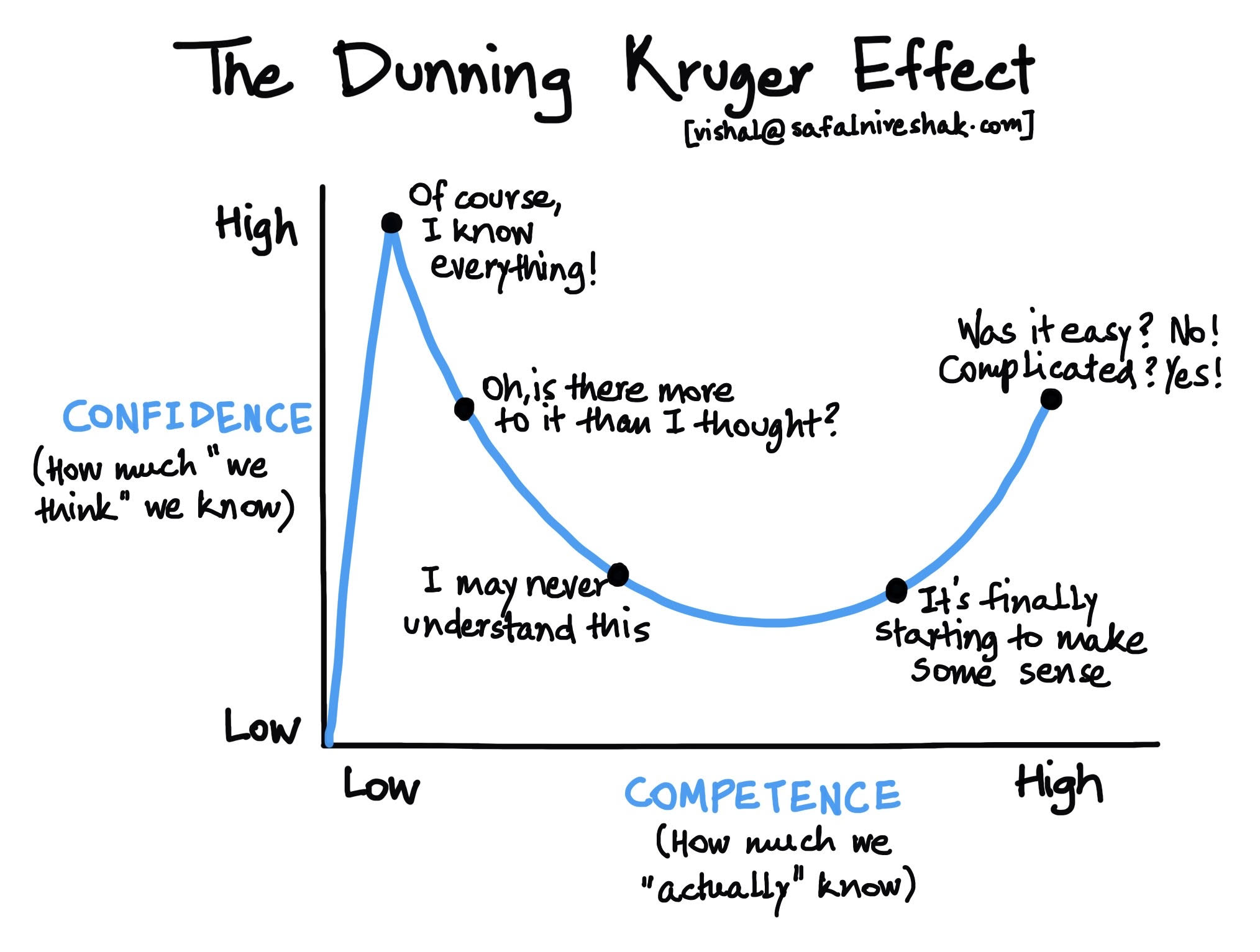
Hanging on in the ‘valley of despair’
In the last year, I feel like I have spent much time in that area that some have coined the “Valley of Despair” — that part between “I may never understand this” and “it’s finally starting to make some sense”.
There was just so much to learn about community building, creating a strategic plan, leading a team, finding a business model for the co-operative and answering the existential questions for our co-op, such as:
• What value might AGS bring to the social sector?
• Why should changemakers want to join?
• How is AGS different from (insert organisation here)?
At times, it was really frustrating when there just wasn’t a clear answer to these questions and no real certainty as to what might happen in the future of the co-op, despite our best efforts.
I spent many late nights either reading or typing on my laptop with furrowed eyebrows, desperately trying to think or learn my way out of this situation, falling asleep and waking up the next day frustrated that I didn’t seem to have an answer.
I wanted our co-op to be successful as quickly as possible. I wanted our community of changemakers to trust each other, feel a sense of belonging and collaborate on projects, creating a vibrant sense of community.
But somehow it seemed like we weren’t there yet and there was a long way to go.
I just did not know what I did not know.
I felt deeply uncomfortable with letting go of control, anxious and angry that putting in more work and time didn’t necessarily advance our situation. Of all the setbacks we had, including the funders who rejected us, surrendering to the idea that a community grows at its own time is perhaps the toughest part of my journey so far.
Anthea suggested that I ask myself these questions and I found them to be really valuable:
• What is it about ‘not-knowing’ that makes it so uncomfortable for me?
•What emotions am I noticing when I feel this discomfort?
•What sensations do I notice in my body when I don’t know?
• What practices can I adopt to be more comfortable with ‘not-knowing?’
Perhaps this is the act of leadership that I need to practice more of — to be comfortable with taking a step forward into the dark, even when my flashlight can only illuminate what’s immediately in front of me.
And maybe this is what being a changemaker is all about — instead of being an excellent checklist ticker, it is about confronting what we don’t know, struggling ahead and blazing new pathways in the process.
After almost a year of being in this “Valley of Despair”, I think I can start seeing specific gaps in my knowledge. ‘Community Building’ has become: “learn how to create elements of identity, trust, participation and reward in our AGS community”. Creating a strategic plan has become: “practice setting OKRs for the team in Q2”.
I hope I am slowly becoming aware of what I don’t know.
Is all this effort worth it?
This is perhaps the perennial question for all start-ups. After all the hard and heart work put in, what if it doesn’t succeed? Would it have been worth it?
Even as we celebrate our first birthday, AGS’ survival is not guaranteed. There are so many obstacles ahead, some I have discovered, many I have not.
I’m not sure if I have made peace with this scenario but I cherish the trust that our 44 changemaker members have placed in us, many joining the co-op even when they weren’t so sure what they were joining.
I cherish the opportunity to be a part of their lives and our shared attempt to nurture this community as a gift to changemakers, current and in the future.
Sometimes this whole thing really feels like running a marathon; Perhaps the joy of a marathon is not just in finishing but in running together.
• • •
Sitting on a city bus one summer afternoon, Gretchen Rubin realized that life was passing her by. “The days are long but the years are short,” she wrote in her book The Happiness Project.
While the days are long, the year has flown by. I suppose only time will tell where this co-operative will go but for now…
I have hope.
Hope in our community and hope in us.
As we set sail for uncharted waters, I hope we discover abundant and beautiful lands.
